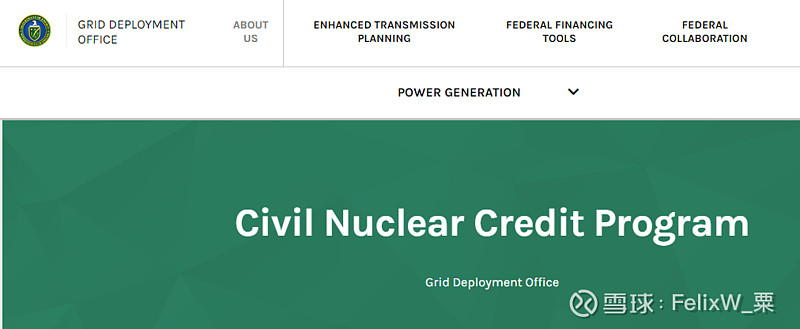

What is the Civil Nuclear Credit Program?
The Civil Nuclear Credit Program is a $6 billion strategic investment through the Bipartisan Infrastructure Law (BIL) to help preserve the existing U.S. reactor fleet and save thousands of high-paying jobs across the country.
Under the new program, owners or operators of commercial U.S. reactors can apply for certification to bid on credits to support their continued operations. An application must demonstrate the reactor is projected to close for economic reasons and that closure will lead to a rise in air pollutants and carbon emissions. The Secretary of Energy must also determine that the U.S. Nuclear Regulatory Commission has reasonable assurance that the reactor will continue operating according to its current licensing basis and poses no significant safety hazards.
Credits will be allocated to selected certified reactors over a four-year period beginning on the date of the selection and credits can be awarded through September 30, 2031, if funds remain available.
First Round Conditional Award Selected
On November 21, 2022, DOE announced the conditional selection of the Diablo Canyon Power Plant, located near Avila Beach, California, to receive the first round of funding from the Civil Nuclear Credit (CNC) Program. Units 1 and 2 at the Diablo Canyon Power Plant were scheduled to be decommissioned in 2024 and 2025, but today’s conditional award of credits valued at up to $1.1 billion, creates a path forward for Diablo Canyon to remain open. Final terms are subject to negotiation and finalization by DOE. Owned and operated by Pacific Gas and Electric Company, Diablo Canyon produces approximately 16 TWh of electricity annually, about 15% of the state’s clean energy. The award will save 1,500 clean energy jobs.
Why Do We Need the Civil Nuclear Credit Program?
The BIL recognizes the contributions of our nation’s existing nuclear reactor fleet in providing reliable, clean power to millions of households. The BIL supports continued operations of these clean energy sources and the nearly half a million U.S. jobs in the nuclearindustry.
Shifting energy markets and other economic factors have already led to early closures of13 commercial nuclear power reactors across the United States in the last decade. More economically at-risk facilities could retire in the coming years.Closing nuclear power plants results in an increase in air pollutants and carbon emissions because fossil fuel plants typically fill the void left by carbon-free nuclear facilities.
The nation’s current fleet of nuclear power plants is vital to achievingthe nation’s goals ofacarbon pollution-free electricity sector by 2035andnet-zero emissions economy-wide by 2050.